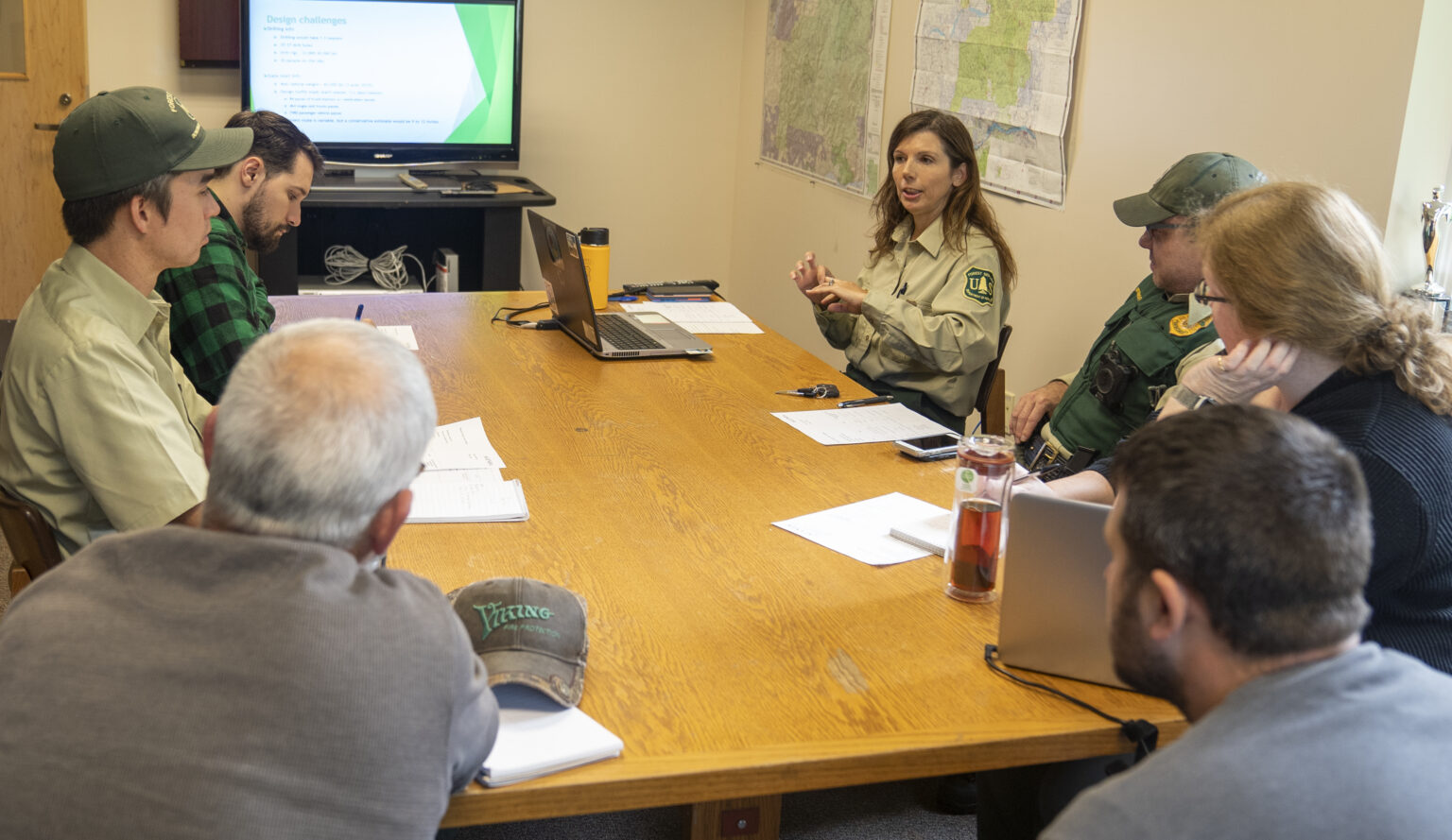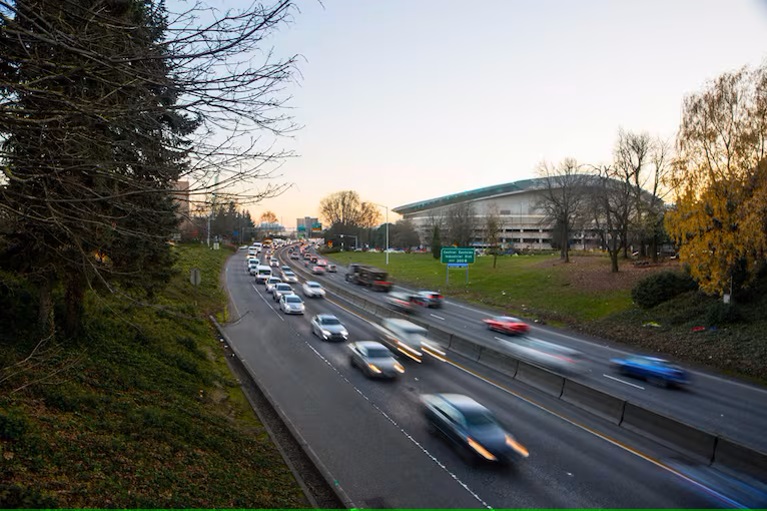Capitol Chatter: Congressman Peter DeFazio is not giving up.
Published 5:36 pm Thursday, July 29, 2021

- Capital Chatter square logo
Congressman Peter DeFazio is not giving up.
The Democrat from Springfield doesn’t quit. And whereas the U.S. House passed DeFazio’s modern approach to rebuilding the nation’s infrastructure – earning praise from the White House – President Joe Biden’s administration has now reversed course and embraced the less-sweeping, old-fashioned fossil-fuels approach contained in the Senate version.
Trending
Or so it seems. Few people know what might be in the bipartisan infrastructure package that senators initially took up on Wednesday.
“We have seen no policy. They voted on a four-page outline. The way we do things in the House, we normally vote on bills that have legislation and text,” DeFazio told me during a Thursday phone conversation from Washington, D.C.
“This outline was written by three people who have no expertise in infrastructure and (was) thrown together. But we still don’t know what’s in it. We’re waiting to see the details, but I have tremendous concerns.”
DeFazio, who represents Oregon’s 4th Congressional District, chairs the House Transportation and Infrastructure Committee. He’s been working on these issues for decades. A story in Politico this week noted that he “possesses a staffer-level knowledge of the issues he covers, earning him respect from both leadership and members in both parties.”
But DeFazio and other House members, along with most senators, have been largely relegated to the sidelines.
“This is a plan that’s being driven by the White House and a small group of senators,” he told me.
Trending
The Politico article summed it up: “DeFazio is on the verge of getting rolled. And he’s not going quietly.”
He’s contacting senators about potential amendments, or he could try to amend the Senate bill when it reaches the House. But it’s uncertain whether the Biden administration and enough senators would go along. The crystal ball is very cloudy.
Without significant changes, DeFazio said, the Senate bill will lock in the failed transportation policies of the past, which don’t deal with resiliency, social equity and climate change.
America’s interstate system dates to the 1950s and President Dwight D. Eisenhower’s Grand Plan to upgrade the nation’s road network through the efforts of the federal government, states, counties and cities.
Today, one in three interstate bridges needs repair or replacement, along with thousands more on other roads. Sewage systems are inadequate. Public water systems are failing. Some Oregon towns confront leaky pipes more than 100 years old. Mass transit in rural areas is so lacking that it essentially boils down to what former Oregon Senate Republican Leader Ted Ferrioli said was the daily choice between driving the red pickup or the blue picking.
DeFazio calls his House bill the best infrastructure legislation ever proposed for rural America, including roads, bridges and innovative transit options so people easily can get to the doctor.
“I wrote a comprehensive, transformative 21st century transportation bill,” DeFazio said of his INVEST in America Act. It passed the U.S. House on July 1, largely along party lines. “Everything else has been Eisenhower 7.0, 8.0 – totally highway-centric, fossil fuel-centric. I wrote a bill that moves us away from fossil fuels and looks at other options to solve congestion problems than just building more lane miles, which just doesn’t work.”
The transportation sector is the largest emitter of greenhouse gases nationally and in Oregon. Because Oregon is so small, the statewide climate-policy bills debated in our Legislature would yield an almost imperceptible effect on global climate change. In contrast, a national approach would be significant.
“There are steps we can take today that won’t inconvenience people – to continue to have the mobility we have today but have it in a way that doesn’t destroy the climate. It’s imperative,” DeFazio said.
He sees the urgency as both environmental and political. The recent massive flooding in Germany destroyed centuries-old homes. Tundra is melting. Siberian forests are burning. So are parts of the Pacific Northwest amid unprecedented heat waves that claimed hundreds of lives. The latest heat wave, coming amid severe drought, caused Gov. Kate Brown on Thursday to declare a state of emergency in 23 of Oregon’s 36 counties.
“This is not normal, but it might be the new normal. And we’ve got to get on top of climate change,” DeFazio said.
Meanwhile, history suggests Republicans will retake the U.S. Senate and House in the 2022 elections, which would mean DeFazio losing his committee chairmanship. His own congressional district has lost some of its blue tint, it’s unknown whether this year’s redistricting will fortify his Democratic base, and he faces a repeat challenge next year from Republican Alek Skarlatos of Roseburg.
DeFazio’s infrastructure bill, which earned the ire of Citizens Against Government Waste, allowed each U.S. House member to designate $20 million for projects that met specific criteria. The Legislature took a similar, although smaller, approach this year at the behest of Oregon House Republicans.
If you missed the news: Ex-Rep. Mike Nearman, R-Independence, who was expelled from the Oregon House for enabling protesters to enter the closed state Capitol last December, is now barred from the statehouse and grounds for 18 months. The ban is among the conditions of his probation after pleading guilty to a misdemeanor charge of first-degree official misconduct.
Nearman also was ordered to perform 80 hours of community service and reimburse the state for $2,700 in damage to the Capitol during the melee on Dec. 21, 2020. As part of the plea agreement, a related charge of second-degree criminal trespassing was dismissed.
Commissioners from Polk, Marion, Yamhill and Benton counties turned down Nearman’s attempt to get appointed to his old seat. They chose his legislative aide Anna Scharf instead. Meanwhile, Nearman’s fight for an open Capitol has turned him into a political martyr in the eyes of some.
Going for governor: Readers responded to last week’s Capital Chatter about next year’s governor’s race by suggesting Sen. Betsy Johnson, D-Scappoose, should run, and Republicans should not count out Medford businesswoman Jessica Gomez.
Folks also said lesser-known candidates, such as Yamhill County Commissioner Casey Kulla, a Democrat, and Sandy Mayor Stan Pulliam, a Republican who has formed an exploratory committee but has not declared his candidacy, deserve more attention.
Another reader asked about the political affiliation of New York Times columnist Nicholas Kristof, who is considering running. I checked Oregon’s voter database. It indicates he is registered to vote in Yamhill County as a Democrat.
As for me, I have three questions for any gubernatorial candidate:
1. What does Oregon need in a governor right now?
2. What qualities does it to take to be a good governor?
3. Is Oregon governable





